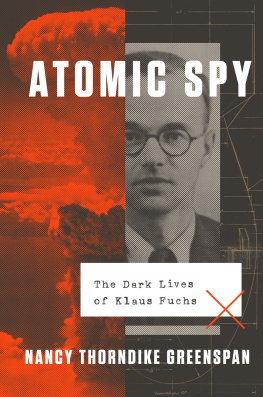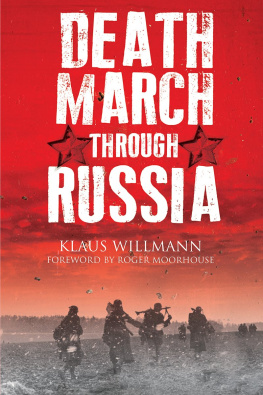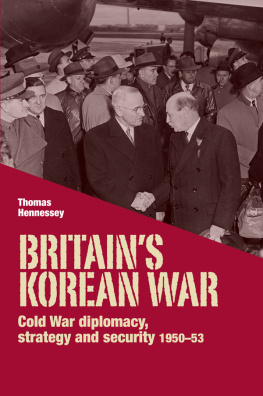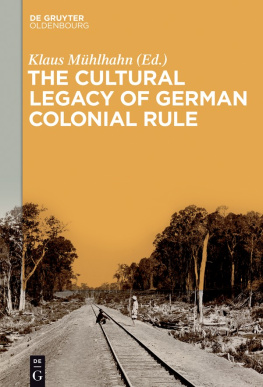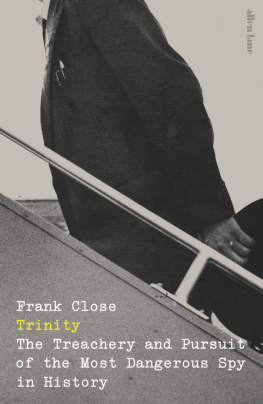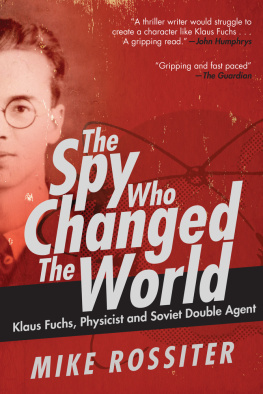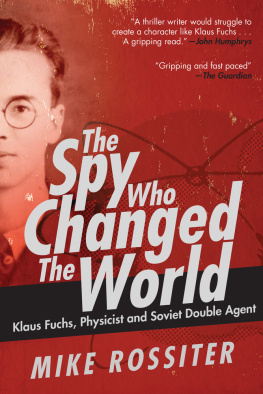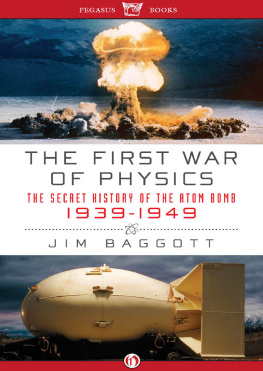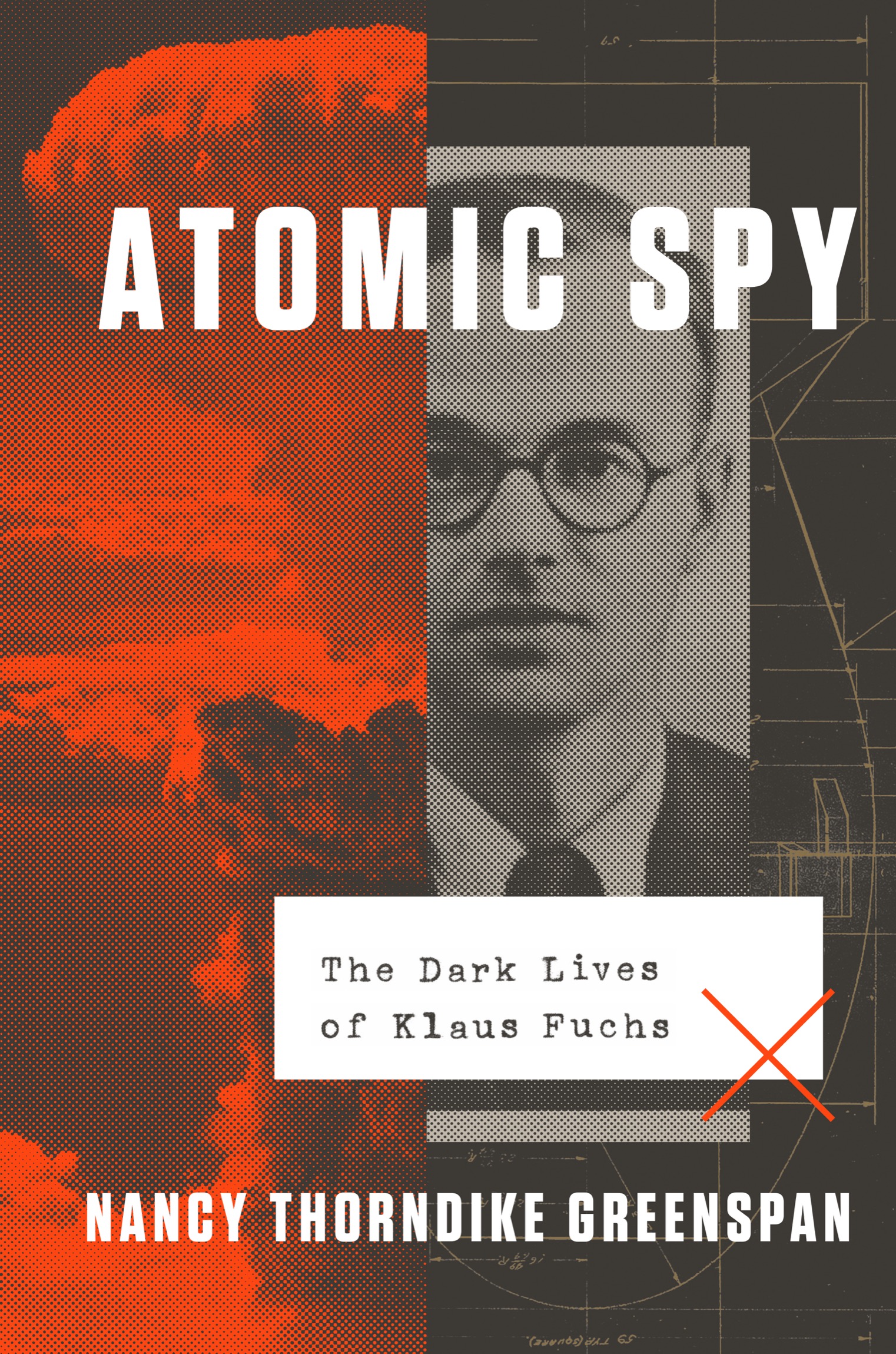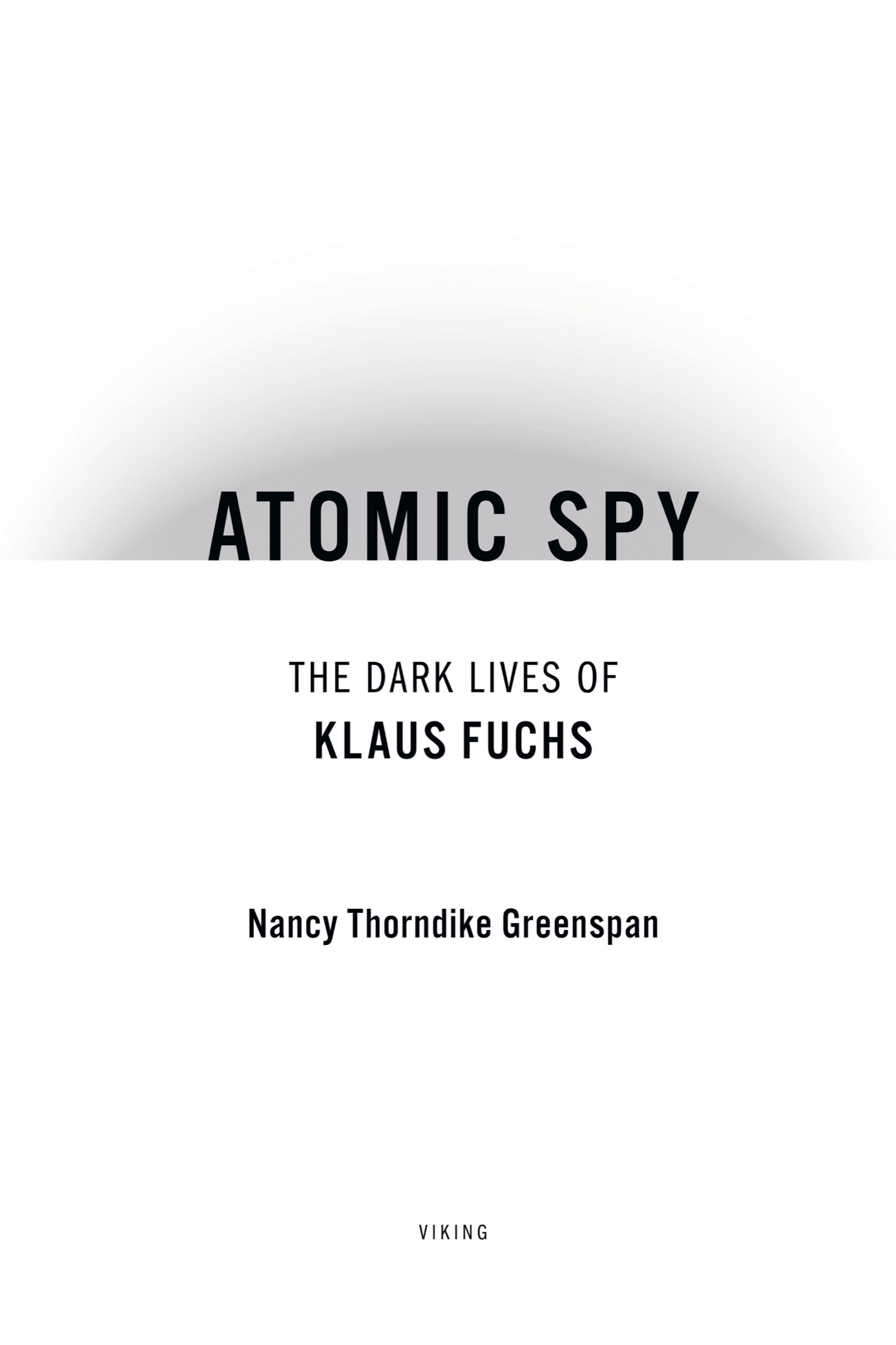Nancy Thorndike Greenspan - Atomic Spy: The Dark Lives of Klaus Fuchs
Here you can read online Nancy Thorndike Greenspan - Atomic Spy: The Dark Lives of Klaus Fuchs full text of the book (entire story) in english for free. Download pdf and epub, get meaning, cover and reviews about this ebook. year: 2020, publisher: Viking, genre: Non-fiction / History. Description of the work, (preface) as well as reviews are available. Best literature library LitArk.com created for fans of good reading and offers a wide selection of genres:
Romance novel
Science fiction
Adventure
Detective
Science
History
Home and family
Prose
Art
Politics
Computer
Non-fiction
Religion
Business
Children
Humor
Choose a favorite category and find really read worthwhile books. Enjoy immersion in the world of imagination, feel the emotions of the characters or learn something new for yourself, make an fascinating discovery.
- Book:Atomic Spy: The Dark Lives of Klaus Fuchs
- Author:
- Publisher:Viking
- Genre:
- Year:2020
- Rating:4 / 5
- Favourites:Add to favourites
- Your mark:
Atomic Spy: The Dark Lives of Klaus Fuchs: summary, description and annotation
We offer to read an annotation, description, summary or preface (depends on what the author of the book "Atomic Spy: The Dark Lives of Klaus Fuchs" wrote himself). If you haven't found the necessary information about the book — write in the comments, we will try to find it.
German by birth, British by naturalization, Communist by conviction, Klaus Fuchs was a fearless Nazi resister, a brilliant scientist, and a highly effective spy. He was convicted of treason by Britain in 1950 for handing over the designs of the plutonium bomb to the Russians, and has gone down in history as one of the most dangerous espionage agents in American and British history. He put an end to Americas nuclear hegemony and single-handedly heated up the Cold War. But, was Klaus Fuchs really evil?
Using archives long hidden in Germany as well as intimate correspondence, Nancy Thorndike Greenspan brings into sharp focus the moral and political ambiguity of the times in which Fuchs lived and the ideals with which he struggled. As a university student in Germany, he stood up to Nazi terror without flinching, and joined the Communists largely because they were the only ones resisting the Nazis. After escaping to Britain, he was arrested as a German migr--an enemy alien--and sent to an internment camp in Canada. His mentor at university, Max Born, worked to facilitate his release. After years of struggle and ideological conflict, when he joined the atomic bomb project, first in Manhattan and later at Los Alamos, his loyalties were firmly split. In 1944, in New York with the British Scientific Mission, he started handing over research, partly because of his Communist convictions but seemingly also to level the playing field of the world powers.
With thrilling detail from never-before-seen archives, Atomic Spy places readers in the Germany of an ascendant Nazi party; the British university classroom of Max Born; a British internment camp in Canada; the secret laboratories of Los Alamos; and Eastern Germany at the height of the Cold War. Atomic Spy shows the real Klaus Fuchs--who he was, what he did, why he did it, and how he was caught. His extraordinary life is a cautionary tale about morality and the prisms through which we perceive it--and a classic anti-hero story.
Nancy Thorndike Greenspan: author's other books
Who wrote Atomic Spy: The Dark Lives of Klaus Fuchs? Find out the surname, the name of the author of the book and a list of all author's works by series.

